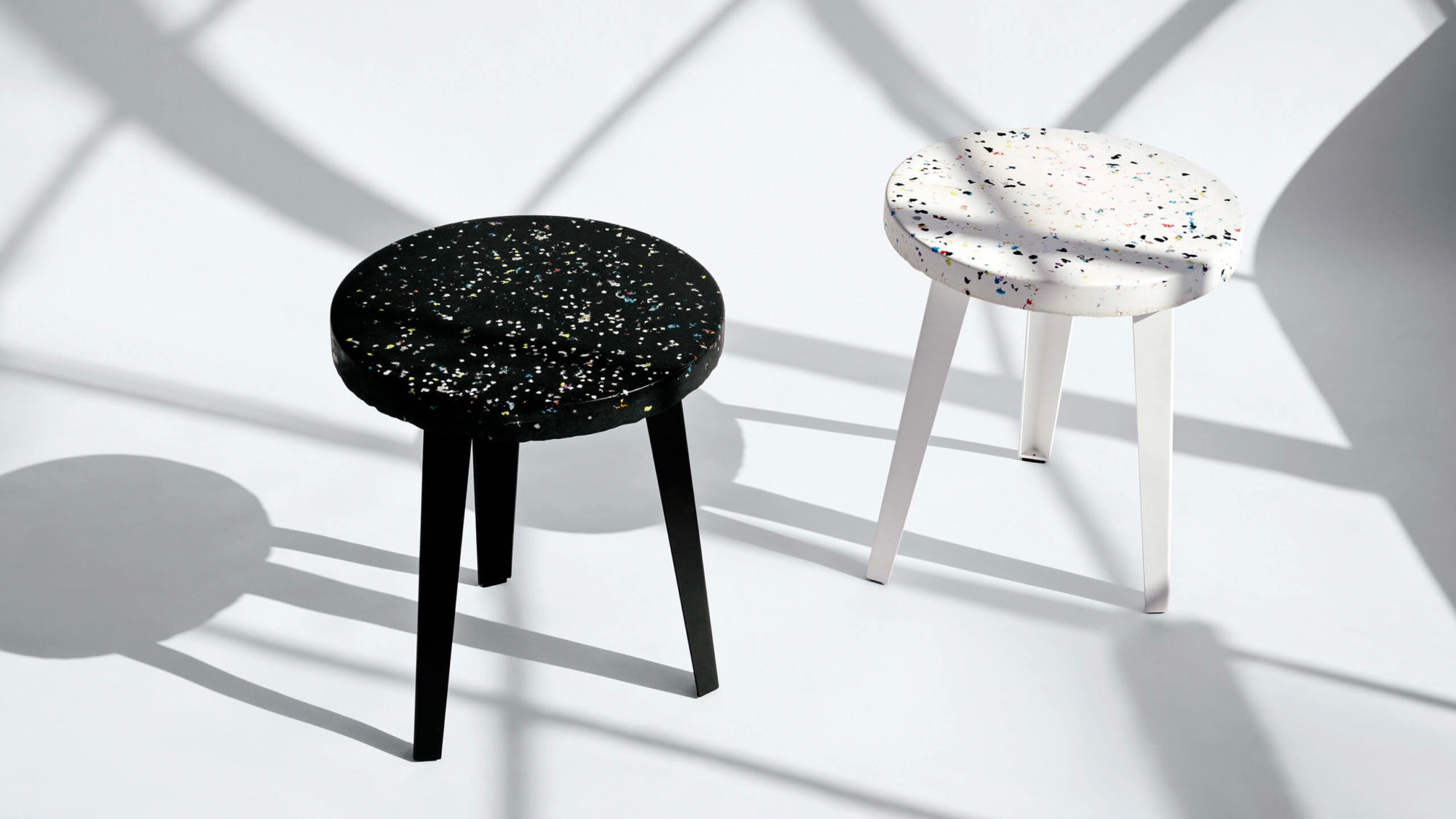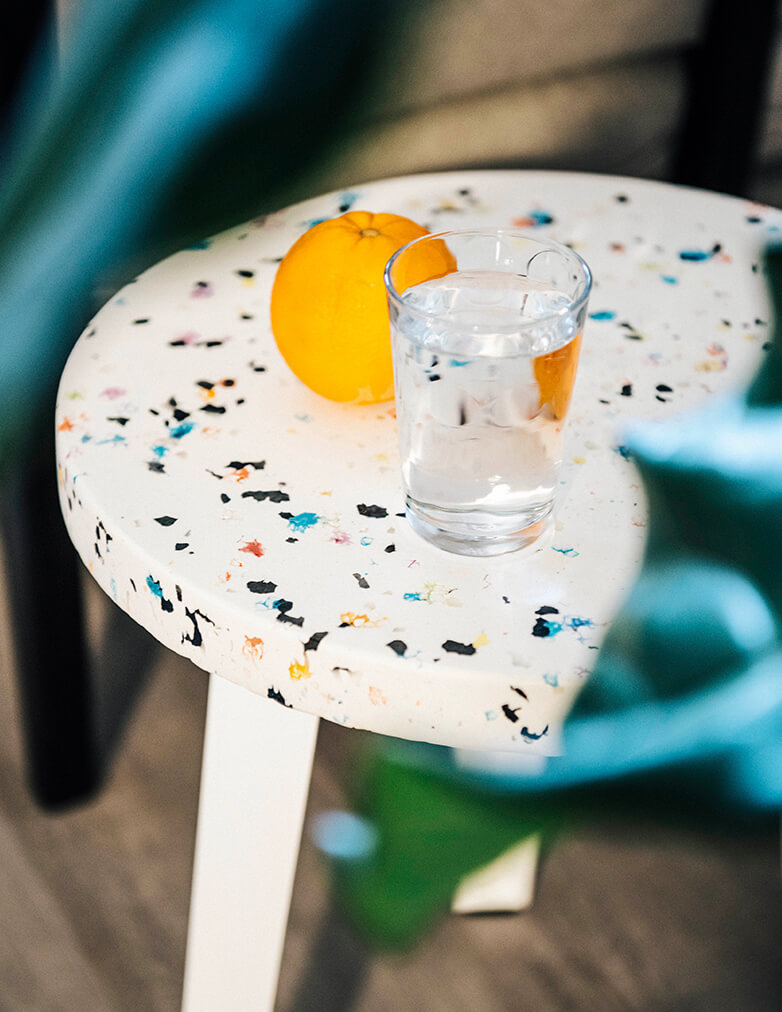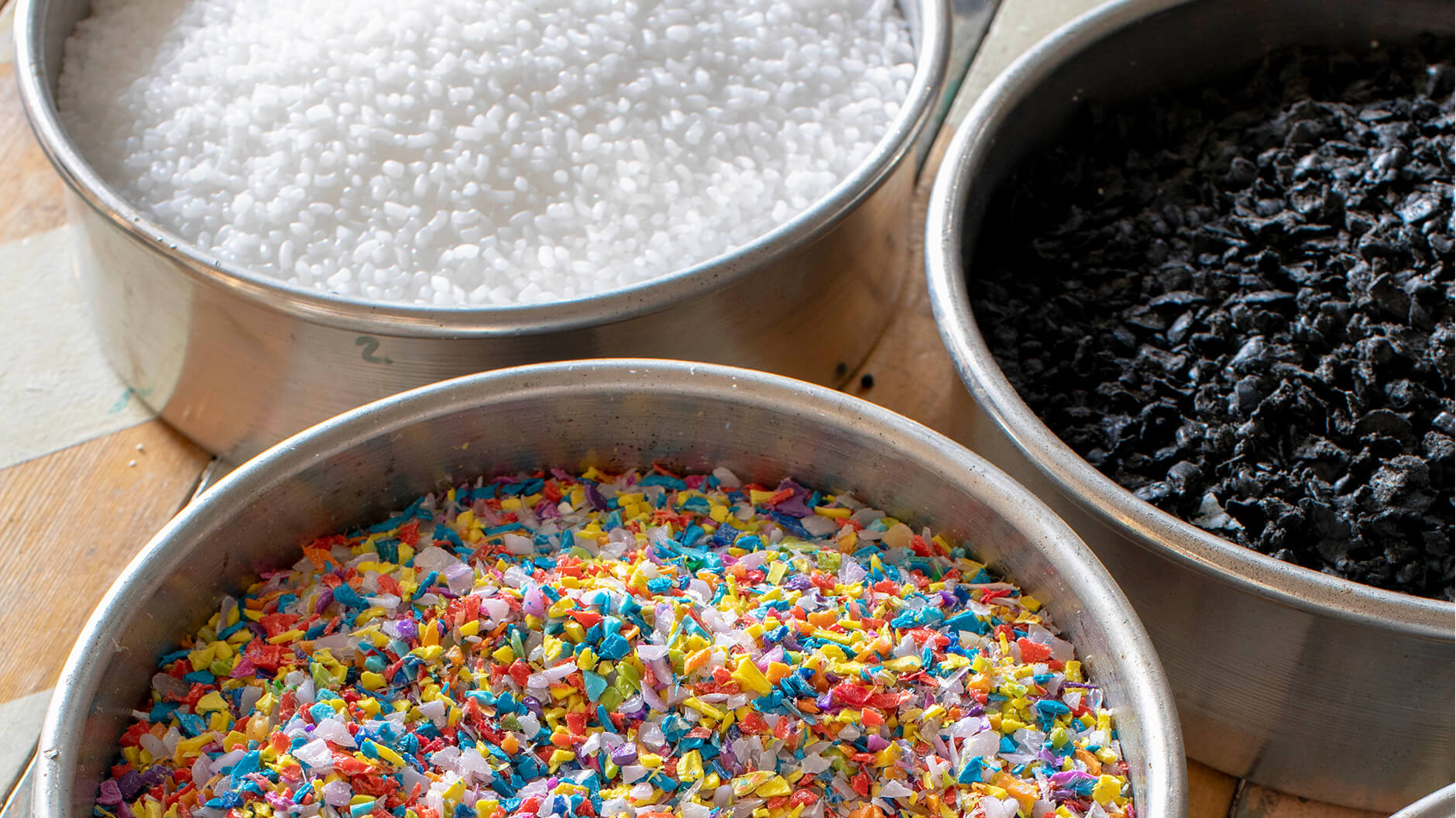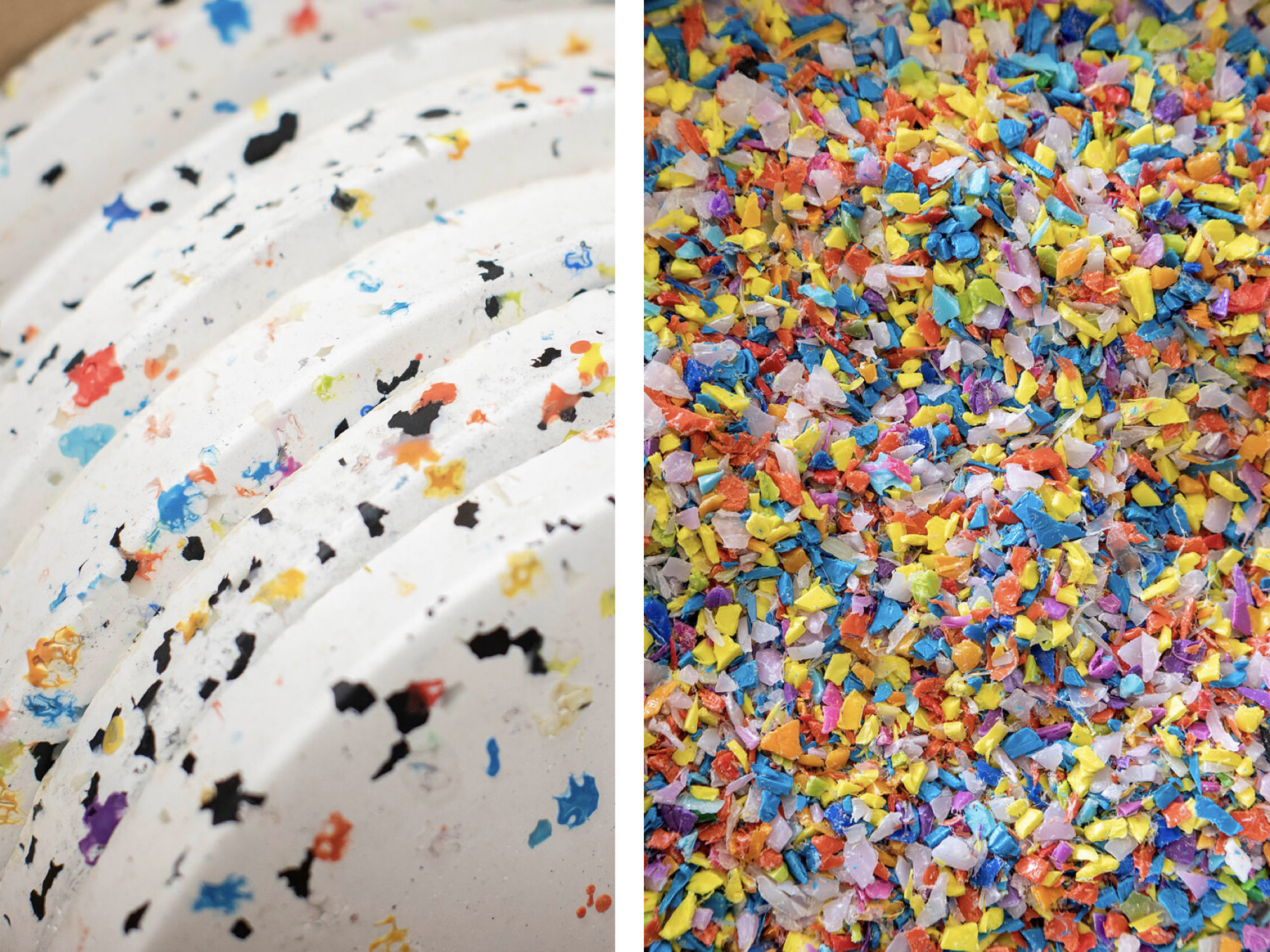“What works good is better than what looks good, because what works good lasts.” These words of wisdom, once quipped by Ray Eames, left a major impact on the Detroit designers and entrepreneurs Kyle Hoff and Alex O’Dell. They fearlessly channeled this philosophy into an up-and-coming furniture brand, Floyd, which has quickly amassed a cult following for durable, American-made pieces celebrated for their sleek silhouettes, flat-pack delivery, and intuitive assembly. “One of our founding principles was putting products out there that people want to keep,” says Hoff, whose green-minded approach permeates nearly every aspect of the brand.
The Floyd Side Table, a brand signature, seems to embody this “made for keeping” ethos. Equipped with three detachable powder-coated steel legs that support a solid birch plywood surface, it makes for a stylish and versatile piece that easily withstands everyday wear and tear. And now, through a collaboration with like-minded experimental studio Thing Thing, the Floyd Side Table is giving a second life to post-industrial plastics sourced straight from Motor City factories. The duo is debuting a reimagined edition, limited to a run of 75, that forgoes birch for playful, handmade tabletops that feature recycled multicolor plastics sprinkled on their surfaces like confetti.
The collaboration signals a bold reinvention for Floyd that still remains true to the brand’s enduring ethos of ease and sustainability. “Every time we launch a new core product, we venture into a new material in some way,” says Hoff, who admits that his new foray into plastics became somewhat of a research endeavor. Thing Thing, fortunately, turned out to be an ideal partner. “They really understand what it takes to give plastics a second life. We’ve learned a ton about materiality and new production techniques that we can potentially apply in the future.”
To ensure that each table is truly one-of-a-kind, Thing Thing measured, blended, and polished the recycled plastics by hand in their studio. The surfaces come in two terrazzo-like colorways: the bright white Cake features plastic scraps sourced from a toy factory; the moody Galaxy, an automotive plant. “We really admire their approach—it’s not just recycling for recycling’s sake, but there’s a story to it,” says Hoff, nodding to Detroit’s automotive industry. “They go about it in such a purposeful way.”
Hoff seems to be doubling down on Floyd’s ambitious sustainability mission, which promises that 70 percent of the brand’s materials will come from recycled or renewable sources by 2025. “With the climate crisis well underway, the time is more urgent than ever to start rethinking materials and how we can make a sustainable future with the products we consume,” he says. “The best thing we could be doing for the environment, of course, is not consuming anything at all, but ideally a furniture company creates products that last. You can produce something out of recycled materials all day, but the number-one thing we can do is make sure that a product has a long lifetime.”




